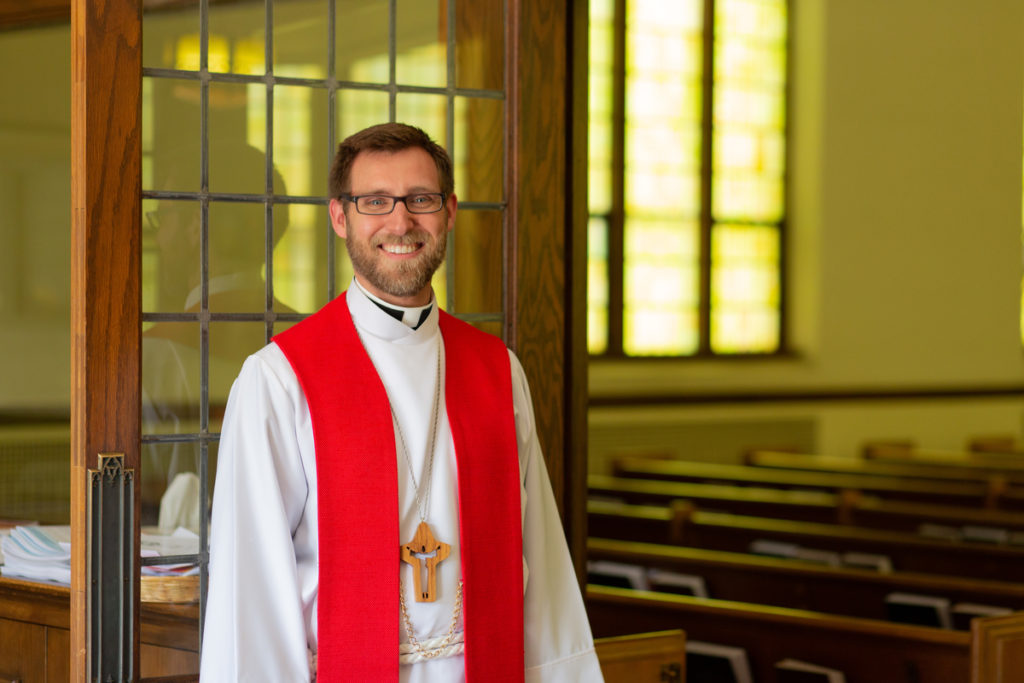Does doctrine matter? That is a question that has been asked again and again in the Church. Sometimes, the question is asked because doctrine seems so dry and boring. It seems so much like academic hair splitting. A second reason is because doctrine divides. During the 17th Century, central Europe endured the 30 Years War, leading to the death of up to one-third of the population of Germany. That war was driven by doctrinal differences between Catholics, Lutherans, and the Reformed.
When the war was over, a movement arose called Pietism. Many saw it as a Second Reformation. Pietism emphasized many things that have become part of our common heritage as Christians. The man considered the founder of Pietism, Philip Jacob Spener, made six proposals to improve the life of the Church. One of them was this:
We must beware how we conduct ourselves in religious controversies.
Being at war with one another, either literally or verbally, does little to spread the Gospel. Non-believers are turned away from the Church when they see how divided we are. In particular, when they perceive that Christians are lacking in love for one another, they wonder about the truth of the Gospel. After all, didn’t Jesus teach that the greatest commandment was to love God and one another?
That is all true, but it’s not so easy to dismiss doctrine. In the Lutheran Church of the 17th Century there was another movement that emphasized doctrine. It is known today as Lutheran Orthodoxy. They spent a great amount of time disputing with Catholics and the Reformed over proper theology. At its best, Orthodoxy was not obsessed with doctrine for its own sake, as if one is saved by having the right answers to abstract theological questions. Rather, Orthodoxy understood that the purpose of doctrine is to preserve the pure preaching of God’s Word and the proper administration of the Sacraments.
Why does this matter? Because it is through the Word and the Sacraments that God gives us forgiveness, life and salvation. For instance, there is the question, “Is the Bible the Word of God?” You might be surprised to hear that question. Both the Pietists and the Orthodox held the Bible in high regard. In fact, Jacob Spener’s complaint was that there wasn’t enough Bible reading in the Church, particularly among the laity. Meanwhile, Catholics, the Reformed, and Lutherans all agreed that the Bible was the Word of God. They only disagreed on how it should be interpreted.
That is not the case today. In the past year, I have heard an ELCA pastor declare that the Bible is not the Word of God. Instead, he said that Jesus is the only Word of God. The Bible, he said, is a Word about God, but it is not the Word of God. The reason he did this is that he finds parts of the Bible to be offensive, outmoded, and oppressive. Rather than turning to the Bible on questions of faith and life, he would prefer that we ask ourselves what we think the “real Jesus” would do. In doing this, he drives a wedge between the Jesus of the Bible and the Jesus that we supposedly “know in our hearts.”
What does Lutheran doctrine teach? It certainly does teach that Jesus is the Incarnate Word of God. However, it also teaches that the Bible is the inspired Word of God. It is in and through the Written Word that we encounter the Incarnate Word. In fact, Lutheran doctrine teaches that the Word of God comes to us in three forms: 1) the Incarnate Word, 2) the Written Word, and finally 3) the Preached and Sacramental Word.
This is where doctrine becomes practical, and not only practical, but a matter of life and death. Think of the question of the forgiveness of sins. If your sins are forgiven, you have life and salvation. If your sins are not forgiven, you will be condemned eternally. So, how do you know your sins are forgiven? How can you be sure? The answer that Lutheran doctrine gives is that you will know for sure when a Preacher announces to you, “Your sins are forgiven.” You will also know for sure when you are Baptized and when you receive the Body and Blood of Christ in Holy Communion.
“But wait a second,” you might say, “how do I know that Preaching, Baptism and Communion do these things?” The answer is very important. You know because it says so in the Bible. Can a human preacher really announce the forgiveness of my sins? Yes! Go read John 20: 22-23 and Matthew 16:18. Does Baptism really save me? Yes! Go read Mark 16:16 and 1 Peter 3:21. Do I really receive forgiveness, life and salvation in Holy Communion? Yes! Go read Matthew 26:27-28.
It all depends on what we believe about the Bible. If it is God’s Word, then we can be comforted with the knowledge that our sins are forgiven for Jesus’ sake. If it is only a human word, we are left to figure it out for ourselves. Lutheran doctrine tells you that you can be confident that the Bible is GOD’S WORD. As the beloved children’s songs says:
Jesus loves me, this I know, for the BIBLE tells me so.
May God give all of us the childlike faith to believe those simple words.
In Christ,
Pastor David Charlton




















Yes. Thanks for this. Sound doctrine will produce orthodox teaching and preaching. Most of all measuring the soundness of doctrine ought to be a primary challenge and reach for those called and tasked to minister publicly.
Good doctrine means good and proper teaching and therefore orthodox confession. How do we appear to the public when we are not vigilant to maintain sound doctrine? It is definitely tied to mission and evangelization for the church’s future.
Again, good words, Pr. Charlton.
George Rahn
Bravo Pr. Charlton! Concise, precise, precious.
Mike Lubas (retired elca)